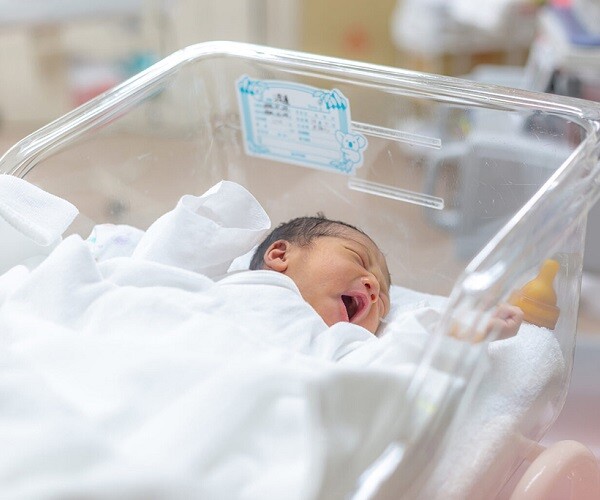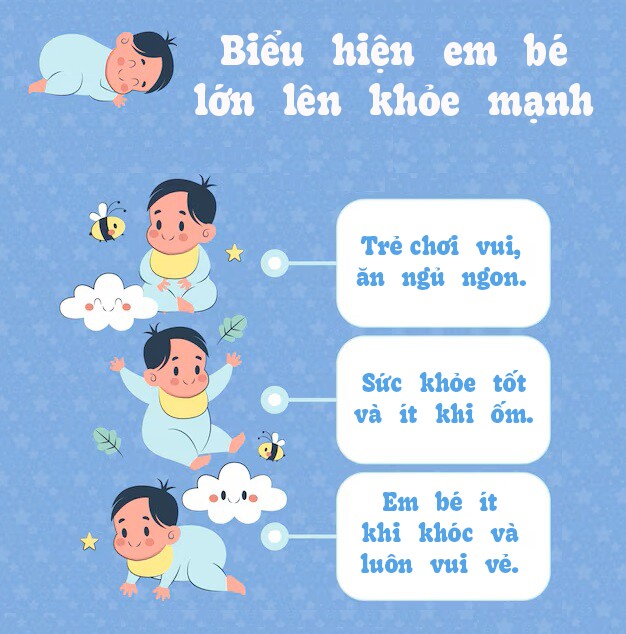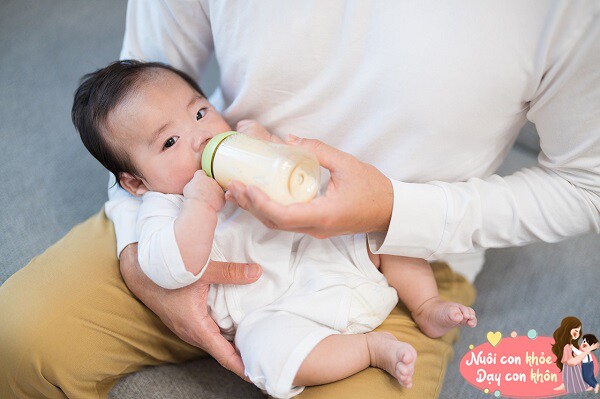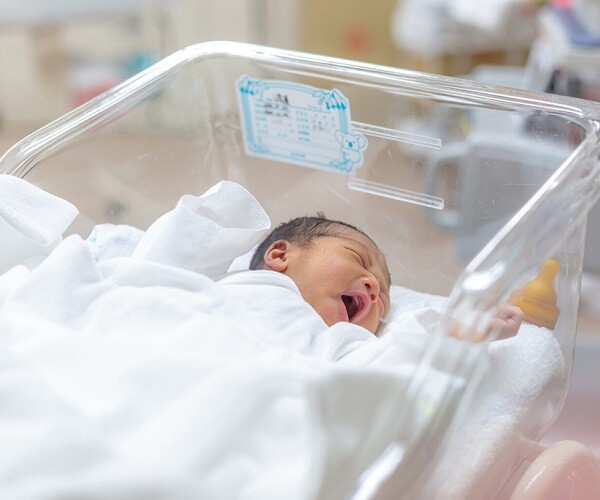There is, in fact, a scientific explanation as to whether babies are born to “repay” or “collect a debt.”
Renowned American pediatrician, Dr. Hills, mentioned in his book, “Hills Intimate Parenting Encyclopedia,” that newborns with high demands from a young age are born to collect a debt, whereas those with lower demands are born to repay.


When Babies Come to “Collect a Debt,” Mothers May Encounter These 3 Situations
Facing Various Pregnancy Challenges
While morning sickness and occasional vomiting during early pregnancy due to hormonal changes are common, some mothers experience more severe cases of nausea that persist throughout their pregnancy. This condition, known as hyperemesis gravidarum, can be highly uncomfortable and impact the health of both mother and fetus.
Additionally, during detailed health checks and ultrasounds to rule out fetal abnormalities, some babies tend to hide their faces or turn away, causing concern for expectant parents.
Despite these challenges, with proper medical support and care, mothers can overcome these difficulties and prepare for a new, happy, and meaningful journey with their babies.

Many newborns tend to cry frequently, fall ill easily, and cling to their mothers…
Difficult Labor and Delivery
For a mother, giving birth is like crossing a threshold between life and death—an intense and meaningful experience. Every contraction and moment is filled with anticipation and anxiety, but also hope and excitement.
The pain of childbirth is described in medical terms as a level 10 pain, an intensity that many cannot fathom. These powerful, prolonged, and relentless contractions can make a mother feel as though she is facing an insurmountable challenge.
For example, a difficult labor may involve irregular contractions or a baby in an unfavorable position, intensifying the pain, prolonging labor, and exhausting the mother.
Clinginess After Birth
One mother shared that her newborn constantly cried and only calmed down when lying next to her. The doctor jokingly said, “Your baby is very smart and knows who you are, but it might be a bit challenging for you to care for them.”
During her maternity leave and newborn care period, she realized that her baby would only follow her and wouldn’t go to anyone else. The baby only recognized her, and if she wasn’t around, the baby would cry incessantly. Every cry tugged at the mother’s heartstrings, and she felt compelled to soothe her baby.

Mothers may experience sleep deprivation when caring for their babies at night.
As a result, she took on all the tasks of caring for her baby, including diaper changes and soothing the baby to sleep. She struggled to get a good night’s sleep, as every slight sound or breath from her baby would wake her up. During the quiet nights, she would sit up, holding her baby close and singing lullabies.
These fragmented moments of sleep became precious yet exhausting.
During the day, she had no energy for anything other than taking care of her baby. The fatigue was overwhelming, making it hard to focus on anything else. She had experienced back and lower back pain since her youth, and now these pains intensified. Yet, her love for her baby always prevailed over physical exhaustion. Every smile from her baby made all the tiredness disappear.

What Are the Characteristics of Babies Who Come to “Repay”?

Image source: Freepik.
Happy, Well-Rested, and Easy-Going
Some babies are likened to “angel babies” due to their pleasant dispositions. They are not particular about their caregivers, love to smile, and enjoy playing independently, displaying independence from an early age. When placed in a safe and comfortable environment, they eagerly explore their surroundings, from simple toys to new sounds.
These babies only cry when they are thirsty or hungry, making their care much more manageable. If their needs are promptly met, they quickly calm down and return to their playful selves.

Happy, well-rested, and easy-going babies.
Good Health and Rarely Falling Ill
When babies fall ill, parents are naturally concerned and have to provide extended care, often losing out on their own rest. Sleepless nights, tending to a feverish or coughing baby, can be challenging for any parent. In these moments, feelings of worry and helplessness can be overwhelming.
On the other hand, some babies rarely fall sick or quickly recover, bringing relief and joy to their parents. When their children are healthy, laughter fills the home once more, making all the worries and care feel worthwhile. For parents, raising a healthy child is a priceless reward.
Infants Who Cry Less and Are Generally Cheerful
Every child has a unique temperament. Some newborns cry loudly, indicating a strong and determined personality. However, other babies appear gentle and cry less, making it easier for caregivers to soothe and care for them.
In reality, whether a baby is “collecting a debt” or “repaying,” they exhibit different temperaments. For babies with higher demands, parents should be more patient, offering abundant love and warmth to assuage their worries and sensitivities.

Infants who cry less and are generally cheerful.
For well-behaved babies, it’s still essential to promptly meet their needs. Just because they are easygoing doesn’t mean they don’t require attention or support from their parents.
Regardless of their temperament, children should be nurtured to develop courage, responsibility, independence, and a sense of gratitude and kindness from an early age.
The Quest for a Princess: A Mother’s Sacred Journey to Find Her Four Daughters
The Great Mother endured a challenging pregnancy and C-section delivery to welcome her four beautiful daughters into the world. Her sole wish was for her children to be born healthy, and 23 years later, her girls made her proud. They grew up to be well-behaved, diligent students pursuing their education abroad, a testament to their mother’s love and dedication.




































